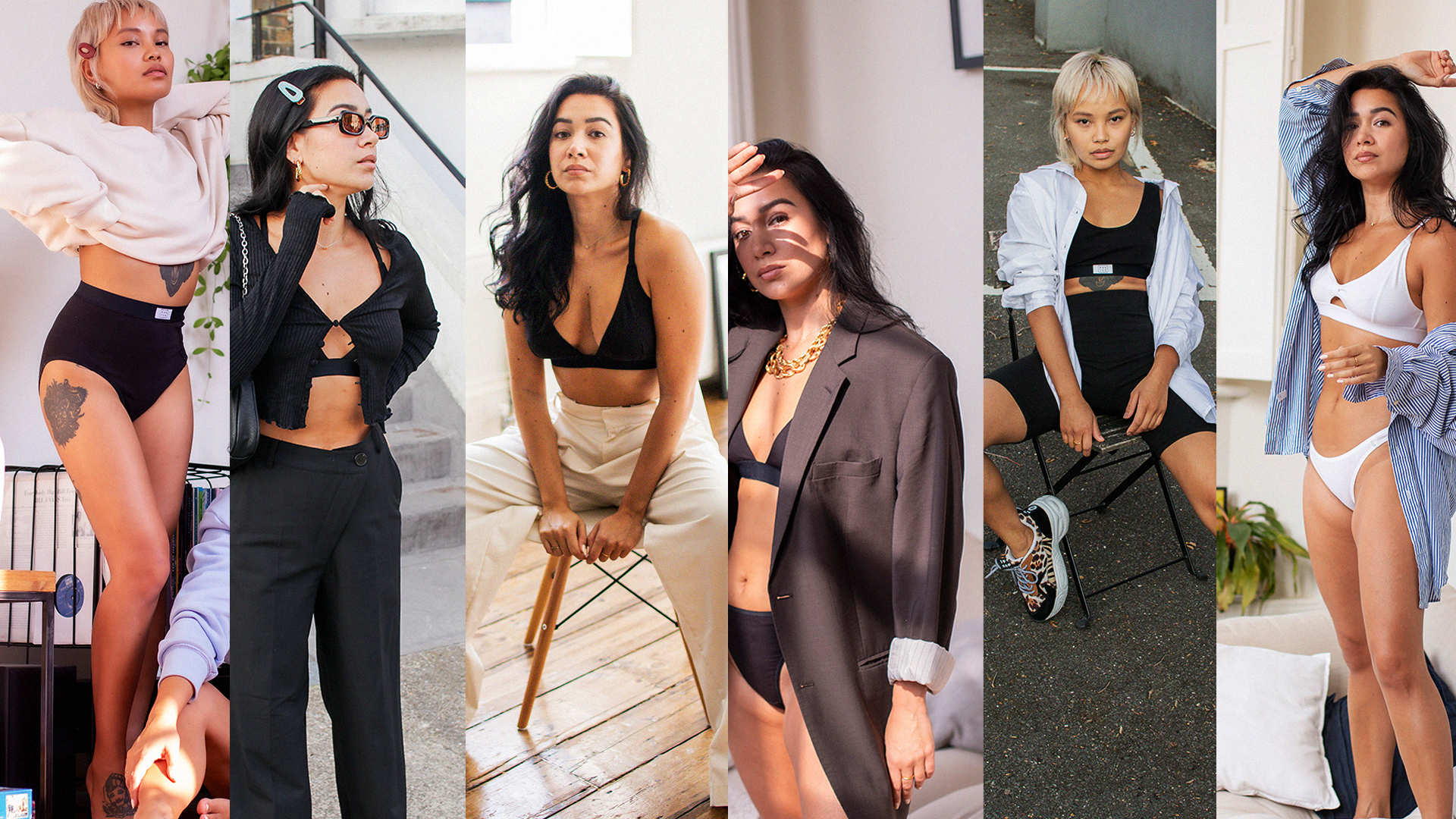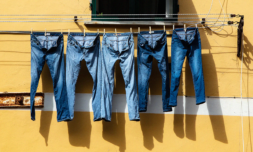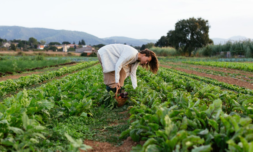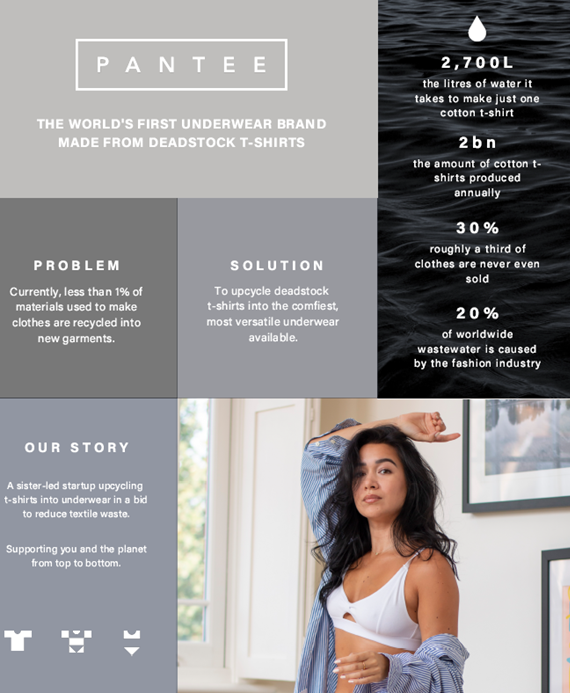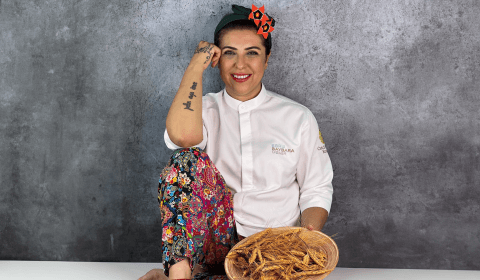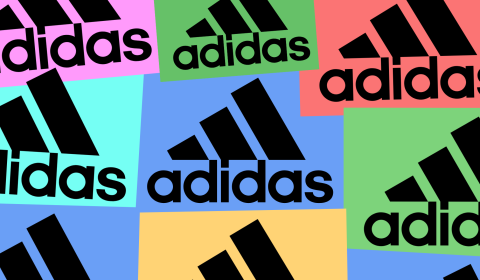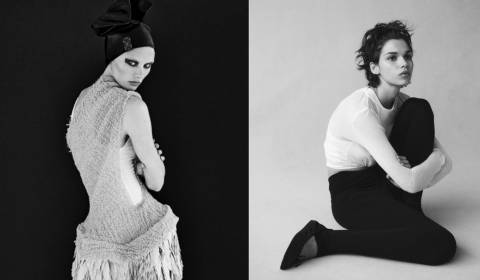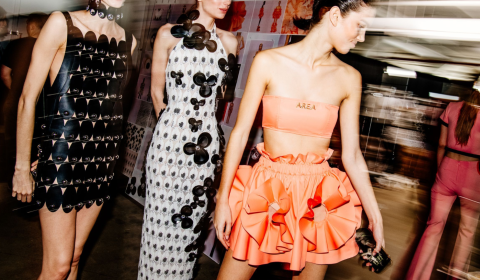With social responsibility ranking at an all time high amongst consumers, we spoke with burgeoning circular fashion brand Pantee about the importance of up-cycling and transparency.
‘Making every choice a sustainable one is hard,’ says Katie McCourt who, with the help of her sister Amanda, has recently launched circular fashion brand Pantee, giving dead and rejected stock a new lease of life by up-cycling t-shirts destined for landfill into comfortable and stylish lingerie. ‘But being aware of the impact we’re having and giving more thought to the goods we’re consuming is a start.’
This is the ethos of Pantee, which I came across through my love of encountering small-scale, independent brands online, a passion that’s introduced me to some truly inspirational designers, many of whom hold the issue of sustainability at the core of what they stand for. The way they see it, fashion and conscious consumerism go hand in hand, co-existing seamlessly and amounting to some extremely innovative ideas.
Born out of this notion, circular fashion (a relatively new concept within the realm of clothing production) refers to anything created with ‘high longevity, resource efficiency, non-toxicity, biodegradability, recyclability, and good ethics’ in mind (according to Green Strategy). Essentially, it’s all about producing items that will stand the test of time and disrupt the constant churning out of goods at a ‘saturation point’ that has the recycling market bursting at the seams.
‘When we learnt about the number of garments going to waste each year, we just had to do something about it,’ says Katie, referring to the industry’s incessant overproduction that leaves a third of clothes unsold annually. That’s $102bn worth of unused textiles currently sitting in warehouses collecting dust. Not to mention the supply chain’s water demand, which sees a staggering 2,700 litres used to make one cotton t-shirt, tantamount to how much you or I would drink in 30 months. And, when you acknowledge that over 2 billion t-shirts are produced annually, the figures are mind-blowing.

‘I’ve always been something of a conscious consumer, but it wasn’t until I started researching the catastrophic impact of this on the environment that I realised the importance of giving back what you take,’ says Katie. ‘So we are beyond proud to have created a collection that pushes the boundaries of what can be achieved through up-cycling,’ she adds.
As the world experiences a crisis of supply, circular fashion matters now more than ever, so keeping deadstock fabrics in circulation is a ‘win-win for people, planet and profit’ (Stephanie Benedetto, CEO of Queen of Raw). An aspect of this model that both consumers and brands can engage in, up-cycling uses materials already in existence, extending the life of garments through repair and refurbishment, or passing them through multiple wearers.
‘It’s a trend that’s still relatively unheard of, but one that’s slowly becoming a lot more prominent,’ says Katie. ‘Considering there’s already so much waste out there, our idea was simple: why not take obsolete t-shirts and turn them into underwear? Underwear that supports you and the planet from top to bottom?’
Pantee’s game-changing approach is bringing up-cycling to the forefront of the fashion conversation, which is particularly relevant following the ‘reset period’ brought about by the Covid-19 pandemic and subsequent shut-down of retail. Providing consumers with an abrupt but necessary opportunity to reflect and reconsider whether they really want to engage in seasonal trends that move at break-neck speeds, a push for more socially responsible and eco-friendly practices has emerged.
‘It’s all going to drastically change,’ says Katie. ‘But it will take a really, really long time. You can already see people’s habits – and what they’re looking for – beginning to transform, especially amongst the younger generations, but it’s not going to happen overnight.’
The crisis has also paved the way for burgeoning brands to properly develop their lines and acquire a prominent space in an industry that hasn’t embraced sustainability to this extent before.
‘We’ve definitely benefitted from this reset period as you call it,’ adds Katie. ‘It’s put us in a much better position where we now feel as though we truly understand what it means to be a sustainable fashion brand.’
Striving to push the boundaries of how people view up-cycling deadstock garments rather than fabrics, Katie and Amanda have additionally made it their mission to shake up the dialogue surrounding such topics.
‘So many people don’t know about these impacts nor about the amount of waste there really is. Covid-19 has led to wasted stock, cancelled orders, and warehouse pileups, but if we look at it differently, there are hundreds of creative ways we can use these resources. Our goal, therefore, is to raise awareness, and the pandemic has allowed us to do just that.’









